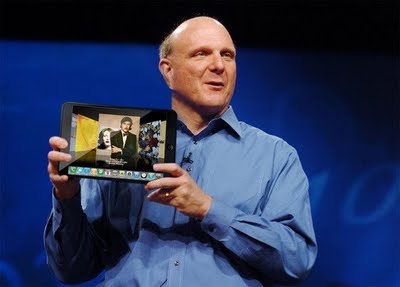Why the hate? Well the problem is that many of these companies would really like nothing more to be able to finally say “we told you so”. They also tend to overlook a few very important facts about the way many tablets and mobile devices are used. A smart phone, tablet, and even many notebooks are all auxiliary items. While I would never say that notebooks are not used as a primary workstation, in many cases a notebook is used as a travel item to allow you to work on-the-go. Phones and tablets are even more firmly in this category. The scenario that has a person with only one Android or Apple tablet and a Smartphone is unlikely (although possible). For one thing you cannot (at this time) update an iPad without a Mac or a PC; you cannot even get them activated without this (unless you buy them at the Apple store in which case they can activate them for you).
On the other hand neither the iPad nor any Android tablet is truly setup to be productivity devices. I have watched as some people try to use them that way, but in the end they almost always end up with a notebook to perform the tasks they need. A tablet is great to show off what you have made, but for content creation they can be a pain and at times awkward to work with. In the end many iPads and Android tablets end up finding a home as an entertainment device. They fall into the same grouping as the netbook did; content consumption not creation. The processors inside are great for many functions and have improved dramatically since they hit the scene, but are still not as flexible or powerful as an x86-64 CPU.
Unless these analysts are thinking of the “PC” as a Windows only thing it is important to remember that PC just means Personal Computer, at the time that the phrase was coined it referred to an IBM device and had nothing to do with Microsoft until years later. Still to claim the death of the PC is not only short sighted it is downright contradictory to the facts and also to what will happen even this year. You have Windows 8 which will arrive for both x86-64 and ARM in Q4 of 2012. This will mean a completely new line-up of ultrabooks, notebooks, desktops, all-in-ones, and yes tablets (x86-64 tablets no less) all of these are “PCs” in their most basic terms. If the analysts are talking Windows only then the fact that there will be ARM based Windows systems will only add to the PC market pool. No matter how thin you slice it, the “PC” is not going anywhere any time soon and if Microsoft can iron out some of the bugs and awkwardness of the MetroUI we will probably see a nice resurgence of the PC in 2013-2014. By 2014 there will be smaller, faster and more power efficient x86-64 CPUs and more than likely a new version of Windows with all of the fixes that people will want from Windows 8 getting ready to launch which will provide for another round of PC purchases.
If the PC does change it will only be to evolve into the central hub for a new generation of connected devices. This is the direction that Apple, Microsoft and even Google are heading and it is one that the consumer market can and will certainly get behind.
Discuss this in our Forum
Editorials
More "The PC Is Dead" Rhetoric, They Could Not Be More Wrong
- Details
- By Sean Kalinich
- Hits: 3148
 As I made my rounds this morning (checking out what the rest of the world thinks is going on in technology) I stumbled across a couple of articles that had my laughing. One of them was just more of what I have been hearing since 1997, the PC is going away. I honestly do not know how some analyst firms can even print this any longer. The PC has been a fixture in the home and work place for so long and it is such an integrated fixture in how people do work that it is very unlikely you will see the PC go away. Still we see this almost every quarter despite both many “PC” related companies posting record quarters and PC sales actually being up between 2-4%.
As I made my rounds this morning (checking out what the rest of the world thinks is going on in technology) I stumbled across a couple of articles that had my laughing. One of them was just more of what I have been hearing since 1997, the PC is going away. I honestly do not know how some analyst firms can even print this any longer. The PC has been a fixture in the home and work place for so long and it is such an integrated fixture in how people do work that it is very unlikely you will see the PC go away. Still we see this almost every quarter despite both many “PC” related companies posting record quarters and PC sales actually being up between 2-4%.



